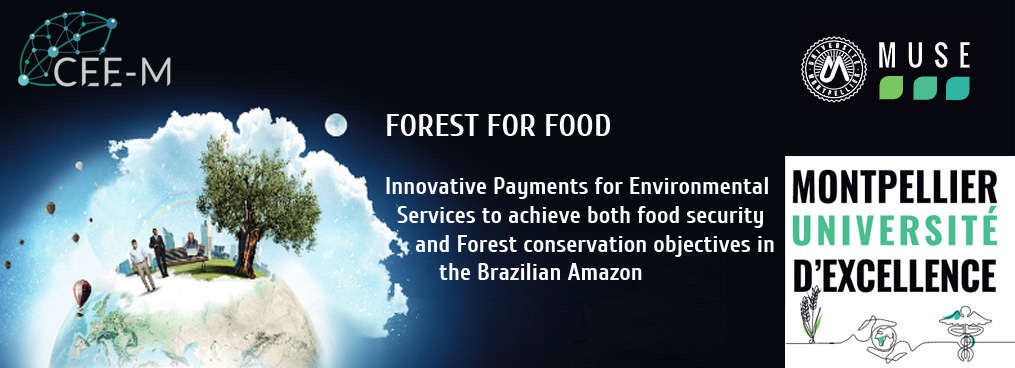
MUSE I-SITE seeks to create a world-class university open to many scientific disciplines. The project combines the talents of 19 partner establishments that contribute to distinguishing the actors of scientific research in montpellier from other universities internationally by producing knowledge and new solutions to meet three major societal challenges: food safety, environmental protection, and human health.
Among the winners of the 2020 edition of MUSE call for projects, Julie Subervie, research director at INRAE, got funding for the project Forest4Food – Innovative Payments for Environmental Services to achieve both food security and forest conservation objectives in the Brazilian Amazon. The Forest4Food project is led by the CEE-M in collaboration with six other research partners: UMR Espace dev, UMR Innovation, UR Forests and Societies, University of Sao Paolo, SOS Amazonia and CIFOR.
Project description: “Curbing deforestation in developing countries may be a cost-effective way to reduce carbon emissions and address climate change. But how to prevent the deforestation of forest lands in areas where landowners depend, for their livelihood, on slash-and-burn agriculture and extensive cattle ranching, two primary drivers of deforestation? The dilemma of food security and climate change in the Brazilian Amazon has been a major concern of the international community for many years now and a variety of solutions has been considered. For some years, offering payments for environmental services (PES) contracts to small landowners has emerged as a potential strategy that may achieve both food security and conservation goals in Brazil. Despite the incentives they offer, however, voluntary PES programs may not be effective in curbing deforestation rates at the end. The Forest4Food project aims at providing answers to three major questions concerning the effectiveness of this type of program: To what extent can voluntary PES programs contribute to avoid deforestation while maintaining food security? Can one design PES contracts that solve the problem of selection effect? Can one further improve the efficiency of PES contracts by including a conservation target determined according to individual opportunity costs?“
